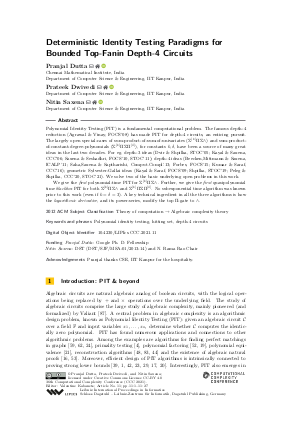LIPIcs.CCC.2021.11.pdf
- Filesize: 1.04 MB
- 27 pages

 Creative Commons Attribution 4.0 International license
Creative Commons Attribution 4.0 International license




Feedback for Dagstuhl Publishing